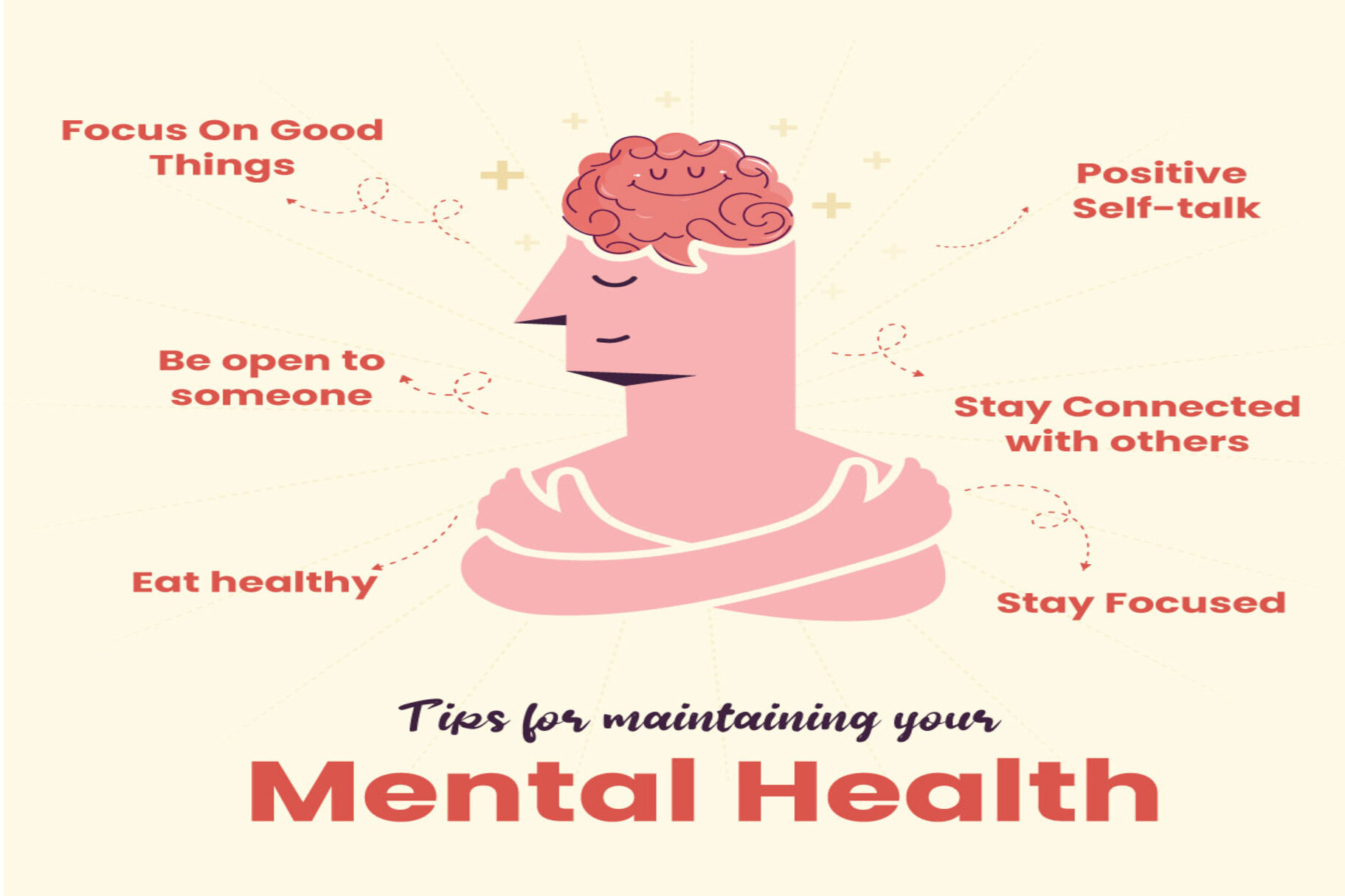Tips for Maintaining Your Mental Health: In today’s fast-paced world, where demands often seem endless and stress feels ubiquitous, safeguarding our mental health is more crucial than ever. Yet, amidst the chaos of daily life, it is easy to neglect our emotional well-being. Fortunately, there are numerous strategies and practices that can help us cultivate resilience, inner peace, and happiness. In this comprehensive Tips for Maintaining Your Mental Health blog, we will delve deeper into each tip, exploring practical ways to prioritize and maintain your mental health.
Prioritize Self-Care:
Self-care is the foundation of mental health maintenance. It involves intentionally nurturing yourself, both physically and emotionally. Consider it a form of self-love—a commitment to your well-being. While self-care can encompass a wide range of activities, the key is to engage in practices that replenish and rejuvenate you. This might involve setting aside time for hobbies, pampering yourself with a spa day, or simply indulging in moments of solitude and reflection.
Stay Active:
Regular physical activity is not only beneficial for your physical health but also for your mental well-being. Exercise has been shown to release endorphins, neurotransmitters that promote feelings of happiness and reduce stress and anxiety. Whether it is going for a jog, practicing yoga, or participating in a team sport, find a form of exercise that you enjoy and make it a regular part of your routine.
Practice Mindfulness:
Mindfulness is the practice of cultivating awareness of the present moment without judgment. By tuning into our thoughts, feelings, and bodily sensations with openness and curiosity, we can learn to navigate life’s challenges with greater ease and clarity. Mindfulness techniques, such as meditation, deep breathing exercises, and mindful eating, can help us cultivate a sense of calm and presence amidst the chaos of daily life.
Connect with others:
Human connection is a fundamental human need, essential for our emotional well-being. Whether it is spending quality time with friends and family, participating in social activities, or volunteering in your community, nurturing meaningful relationships can provide a sense of belonging and support. Even in times of social distancing, technology offers countless opportunities for virtual connection and companionship.
Set Boundaries:
Setting healthy boundaries is essential for protecting your mental health and preserving your energy. This means learning to say no to commitments that drain you, asserting your needs and limitations, and prioritizing self-respect. Boundaries help us establish a sense of control over our lives, reduce feelings of overwhelm, and prevent burnout.
Get Enough Sleep:
Quality sleep is essential for mental health and overall well-being. Yet, in today’s hyper-connected world, many of us struggle to get adequate rest. Prioritize sleep by establishing a regular sleep schedule, creating a calming bedtime routine, and optimizing your sleep environment. By prioritizing rest, you will not only feel more energized and focused but also more emotionally resilient.
Seek professional help when needed.
Lastly, if you are struggling with your mental health, do not hesitate to seek professional support. Therapy, counseling, and medication can be invaluable tools for managing conditions such as anxiety, depression, and stress. Remember, reaching out for help is a sign of strength, not weakness, and there is no shame in seeking support when you need it.
Conclusion:
Incorporating tips for maintaining your mental health into your daily life can help you cultivate a greater sense of resilience, happiness, and well-being. Remember, maintaining your cognitive health is an ongoing journey, and it’s okay to seek support and guidance along the way. By prioritizing self-care, staying active, practicing mindfulness, nurturing relationships, setting boundaries, prioritizing sleep, and seeking professional help when needed, you can take proactive steps towards a healthier, happier mind. Your mental health matters—make it a priority.
